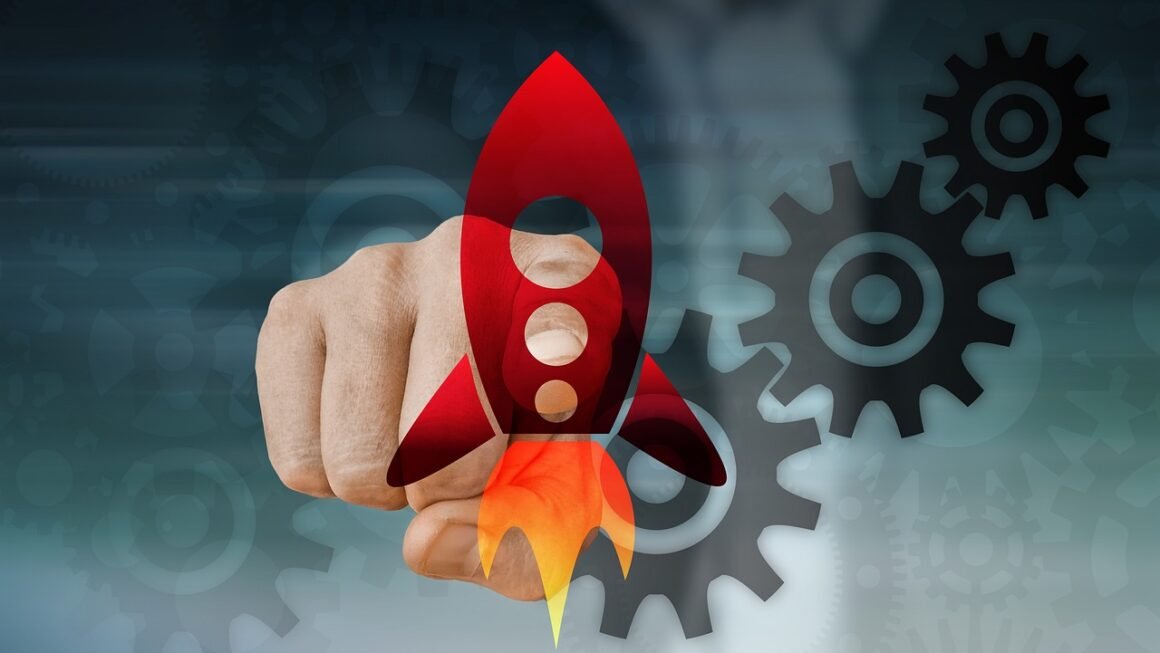Imagine juggling multiple projects, deadlines looming, and a never-ending to-do list threatening to overwhelm you. Sound familiar? Effective task management is the key to transforming that feeling of chaos into one of control and accomplishment. This isn’t just about making lists; it’s about strategically planning, prioritizing, and executing your work to achieve your goals efficiently and effectively. Let’s dive into the world of task management and explore how you can master it.
Understanding the Importance of Task Management
Why is Task Management Crucial?
Effective task management isn’t just a nice-to-have skill; it’s essential for productivity, stress reduction, and achieving both personal and professional goals. Without a solid system in place, you’re likely to miss deadlines, become overwhelmed, and struggle to focus on what truly matters.
- Increased Productivity: Task management helps you prioritize and focus on the most important tasks, leading to increased productivity and efficiency.
- Reduced Stress: By breaking down large projects into smaller, manageable tasks, you can alleviate stress and feel more in control of your workload.
- Improved Organization: A good task management system keeps all your tasks, deadlines, and notes organized in one place.
- Better Collaboration: When working with a team, task management tools facilitate clear communication and accountability.
- Goal Achievement: By tracking progress and staying on schedule, task management helps you achieve your goals faster and more effectively.
For example, consider a marketing team launching a new product. Without proper task management, team members might be working on different aspects without clear communication, leading to missed deadlines and a disjointed campaign. With task management, the team can break down the campaign into smaller tasks, assign responsibilities, and track progress to ensure a successful launch.
Statistics on Task Management
- According to a study by McKinsey, employees spend an average of 28% of their time reading and answering emails. Effective task management can help reduce this time by streamlining communication and prioritizing tasks.
- Research from Project.co shows that 77% of high-performing projects use project management software, which often includes robust task management features.
Choosing the Right Task Management Tools
Digital Task Management Tools
A plethora of digital task management tools are available, each offering unique features and benefits.
- Asana: A popular project management tool that allows you to create tasks, assign them to team members, set deadlines, and track progress. Asana integrates with other tools like Slack and Google Drive.
Example: Use Asana to manage a software development project, tracking sprints, bug fixes, and feature releases.
- Trello: A visually appealing Kanban-style board that allows you to organize tasks into lists and cards. Trello is great for visual learners and teams that prefer a flexible workflow.
Example: Use Trello to manage a content marketing calendar, visualizing the progress of each blog post from idea to publication.
- Todoist: A simple and intuitive task management app that focuses on personal productivity. Todoist allows you to create tasks, set reminders, and prioritize your day.
Example: Use Todoist to manage your personal to-do list, keeping track of errands, appointments, and personal projects.
- Microsoft To Do: A simple and integrated task management app by Microsoft, often bundled with Microsoft 365. It integrates seamlessly with Outlook and other Microsoft services.
Example: Use Microsoft To Do to manage your daily tasks, integrating them directly into your Outlook calendar.
Traditional Task Management Methods
While digital tools offer many advantages, traditional methods still hold value.
- Paper Planner: A classic method that allows you to write down your tasks, deadlines, and notes in a physical planner. This can be beneficial for those who prefer a tactile experience.
Example: Use a bullet journal to track your daily tasks, goals, and notes in a personalized and creative way.
- Whiteboard: A large whiteboard can be used to visualize tasks and projects. This is a great option for teams that prefer a collaborative and visual approach.
Example: Use a whiteboard to map out a project timeline, assigning tasks to team members and tracking progress.
Factors to Consider When Choosing a Tool
- Your Needs: What are you trying to achieve? Do you need a simple to-do list or a comprehensive project management system?
- Team Size: Are you working alone or with a team? Consider tools that offer collaboration features.
- Budget: Some tools are free, while others require a subscription.
- Ease of Use: Choose a tool that is intuitive and easy to learn.
Effective Task Management Techniques
Prioritization Techniques
Prioritization is crucial for focusing on the most important tasks.
- Eisenhower Matrix (Urgent/Important): Categorize tasks based on urgency and importance. Focus on tasks that are both urgent and important, schedule tasks that are important but not urgent, delegate tasks that are urgent but not important, and eliminate tasks that are neither urgent nor important.
- Pareto Principle (80/20 Rule): Identify the 20% of tasks that will yield 80% of the results. Focus on these high-impact tasks.
- ABC Analysis: Assign a value (A, B, or C) to each task based on its importance. Focus on A tasks first, then B tasks, and finally C tasks.
Time Management Strategies
Efficient time management is essential for completing tasks on time.
- Time Blocking: Allocate specific blocks of time for specific tasks. This helps you stay focused and avoid distractions.
- Pomodoro Technique: Work in focused bursts of 25 minutes, followed by a 5-minute break. After four Pomodoros, take a longer break of 20-30 minutes.
- Eat the Frog: Tackle the most challenging or unpleasant task first thing in the morning. This allows you to start your day with a sense of accomplishment and avoid procrastination.
Task Breakdown and Delegation
- Breaking Down Large Tasks: Divide large, complex tasks into smaller, more manageable subtasks. This makes the task less daunting and easier to complete.
* Example: Instead of “Write a blog post,” break it down into “Research topic,” “Create an outline,” “Write the first draft,” “Edit and proofread,” and “Publish.”
- Delegation: Assign tasks to others when appropriate. This frees up your time to focus on higher-priority tasks and empowers your team members. Ensure clear instructions and expectations when delegating.
Overcoming Common Task Management Challenges
Procrastination
- Identify the Root Cause: Why are you procrastinating? Are you afraid of failure? Are you overwhelmed by the task?
- Break Down the Task: Make the task less daunting by breaking it down into smaller steps.
- Set Realistic Goals: Don’t try to do too much at once. Set small, achievable goals.
- Reward Yourself: Reward yourself for completing tasks, even small ones.
Distractions
- Identify Your Distractions: What are the biggest distractions in your work environment? Social media? Email?
- Minimize Distractions: Turn off notifications, close unnecessary tabs, and find a quiet place to work.
- Use Productivity Apps: Use apps that block distracting websites and apps.
Burnout
- Take Breaks: Schedule regular breaks throughout the day.
- Set Boundaries: Don’t overwork yourself. Set clear boundaries between work and personal life.
- Prioritize Self-Care: Make time for activities that you enjoy and that help you relax and recharge.
- Delegate: Don’t be afraid to ask for help or delegate tasks when you’re feeling overwhelmed.
Conclusion
Mastering task management is an ongoing process, but by understanding the importance of task management, choosing the right tools, implementing effective techniques, and overcoming common challenges, you can significantly improve your productivity, reduce stress, and achieve your goals more effectively. Experiment with different approaches and tools to find what works best for you and your team. The key is to create a system that is sustainable and helps you stay organized and focused on what truly matters. Embrace the power of effective task management, and unlock your full potential.



